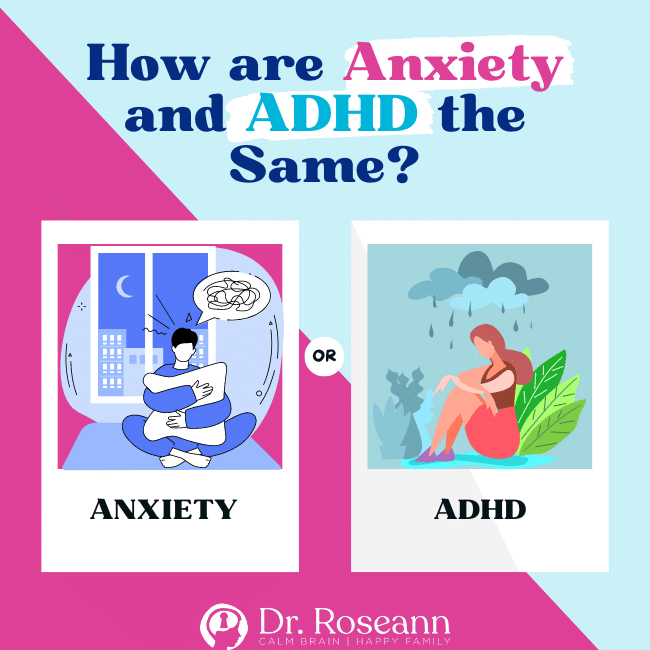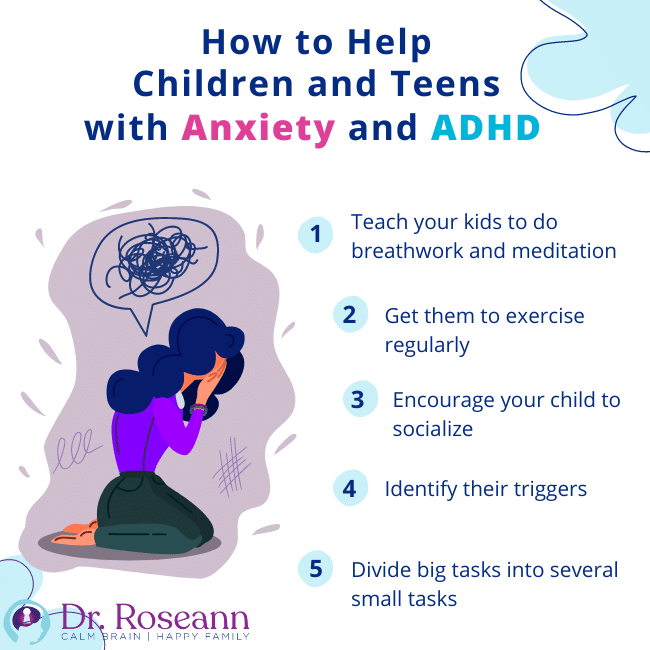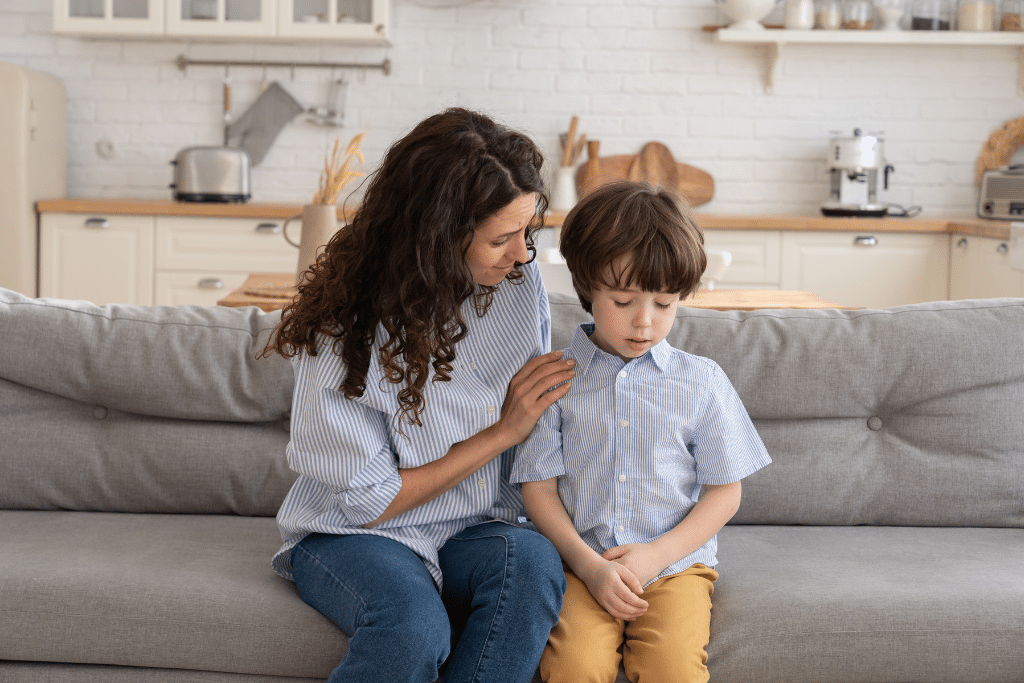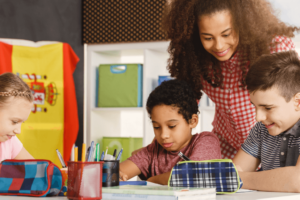Attention Deficit Hyperactivity Disorder or ADHD may occur with other mental health disorders such as learning disorders, dyslexia, depression, and anxiety. However, when ADHD is combined with another mental health condition, children and teens face twice as much of a challenge.
When children face a dual diagnosis of ADHD and a clinical mental health condition, paying attention and getting tasks done is even harder. I recall Jared who had ADHD from early childhood when anxiety hit him as the work piled up in middle school. Jared couldn't keep up with his schoolwork and was in constant trouble as a result, so he became increasingly anxious.
Because of the high rate of multiple diagnoses of ADHD, mental health professionals should be able to diagnose ADHD during childhood so that other health disorders can be detected early or prevented entirely.
Because anxiety and ADHD are comorbid conditions, it is essential to determine the root cause of your child's symptoms to arrive at an accurate diagnosis. The first steps to addressing these behavioral problems include seeing a healthcare professional, creating a proper diagnosis, and scheduling a family therapy session to explore different treatment options.
Our Ridgefield, CT clinic uses natural solutions as an alternative to anti-anxiety medications and ADHD treatment drugs with many side effects. We utilize cognitive behavioral therapy and neurofeedback as some of our effective treatment plans against ADHD and the different types of anxiety disorders.
What is Anxiety?
Anxiety is the state of excessive worry, uneasiness, and long-lasting feelings of nervousness. However, there's a big difference between mild anxiety and clinical anxiety.
Mild anxiety is like getting worried about an upcoming major exam in school and dissipates after. Clinical anxiety is when kids worry about the exam long after they are done and that anxiety is persistent and interferes with their daily activities.
Clinical anxiety caused by compound stressors gets the nervous system to stay in the flight, fight, and freeze states. In this state, a child or teen can be irrational and tough to communicate with.
Anxiety may occur when a person receives a trigger from sensory, emotional, and environmental factors. These triggers activate the nervous system, leading to emotional unease and uncomfortable physical sensations. Those stuck in a constant activation find it hard to pay attention and think and are more prone to physical ailments, such as autoimmune conditions.
Social interactions, experiences, and changes may also trigger a person's social anxiety disorder, which is the fifth most common mental health condition in the US. Teens are susceptible to anxiety because they are going through adolescence which involves a lot of physical and social transformations happening at the same time.
As teens move past their childhood habits, they gain more responsibilities entering high school. Unfortunately, high school is also when they experience peer pressure. As a result, teens tend to harbor fears and insecurities about school performance and social relationships, which may cause excessive anxiety.
Signs of Anxiety to Look For:
Excessive worry: Worries about things beyond their control such as safety of loved ones or personal safety.
Fear of separation: Fear or reluctance to leave home, go to school or be away from parents.
- Physical symptoms: Complaints of headaches, stomachaches, fatigue, or other physical symptoms that are not caused by a physical illness.
- Perfectionism: Extreme need for perfection, fear of making mistakes, difficulty in starting or completing tasks.
- Avoidance behavior: Avoiding situations or activities that may trigger anxiety, such as social events or group activities.
- Sleep disturbances: Difficulty falling asleep, staying asleep or nightmares.
- Irritability: Increased irritability or anger, tantrums, crying or mood swings.
- Shyness: Extreme shyness or social anxiety, reluctance to talk to new people, or avoidance of social situations.
- Excessive self-doubt: Low self-esteem or negative self-talk, or being overly critical of themselves.
What is ADHD?
ADHD is a very complex issue that affects children, causing them to struggle with executive functioning and focus. A clinical diagnosis of ADHD means they display problems with inattentiveness and/or hyperactive and impulsive behaviors.
Many factors may affect a child's ability to focus, including anxiety, chronic stress, and learning disorders. In today's world with so many distractions, it can be hard to focus.
Parents may miss their child's focus problems because of their anxiety, worrying or high stress levels get in the way of getting tasks done. If your child's brain gets stuck in a worried and fearful state, they can't focus on their tasks.
The worst part is that some teens are good at masking their worries, which is why parents miss the symptoms and never know that their child suffers from anxiety alongside ADHD. Diagnosing ADHD early on and getting them the right help will help immensely.
Signs of ADHD to Look For:
- Inattention: Difficulty paying attention, following instructions or completing tasks, often appearing forgetful, disorganized or easily distracted.
- Hyperactivity: Fidgeting, squirming, restlessness or excessive talking or moving, often appearing as if “driven by a motor”.
- Impulsivity: Acting without thinking, interrupting others, or engaging in risky behaviors without considering the consequences.
- Forgetfulness: Losing things often such as toys, books, or school supplies, and having difficulty remembering details, appointments, or assignments.
- Difficulty in social situations: Interrupting, appearing impatient or having difficulty in turn-taking, and trouble with social cues or fitting in with peers.
- Poor time management: Difficulty with time management, often being late or struggling to prioritize tasks or activities.
- Lack of focus: Difficulty following instructions, completing tasks, or finishing homework.
- Poor academic performance: Struggling in school, poor grades or low test scores, difficulty in completing assignments or following classroom rules.
ADHD and anxiety are the two most common mental health conditions in the US. There's a high comorbidity rate for individuals suffering from anxiety disorders and ADHD. It means that both disorders may be present in your child.
Anxiety is more closely related to attention problems than hyperactivity or impulsivity issues. Environmental factors and genetics are risk factors for attention problems and anxiety (Michelini et al., 2014).
For some kids with ADHD, anxiety isn't all bad. Maric et al. (2018) found that anxiety disorder is a protective factor for ADHD children with inhibition problems, particularly in teens who don't take stimulant medications. So for children with impulsive type ADHD, anxiety actually slowed their behavioral responses. In addition, that anxiety could be protective in everyday life for children with behavioral issues.
While a little bit of anxiety might help an ADHD child put the brakes on, for most kids anxiety is a detriment to their physical and mental health.
For such a reason, it's necessary to check for an anxiety disorder during an ADHD evaluation. Parents should also be aware of the comorbidity, particularly the possible adverse effects of certain ADHD medications on children with inhibition issues and anxiety (Maric et al., 2018).
Many experts also believe that the symptoms of ADHD may contribute to anxiety. For example, an inattentive, hyperactive, and impulsive child is at a higher risk of being socially rejected or bullied.
To avoid bullying and rejection, care should be taken to give children with ADHD social skills support. Anxiety develops when asked to move out of their comfort zones, so these kids need practice and reinforcement of skills.
How are Anxiety and ADHD the Same?

Although anxiety and ADHD are two different disorders, their symptoms may overlap, as executive functioning, attention and alertness are impacted. Here are some of the similar symptoms found in children and teens with anxiety and ADHD:
Fear of socializing
Children and teens with anxiety struggle with socializing because they fear rejection and getting judged. On the other hand, those with ADHD are impulsive, interruptive, and have difficulty picking up social cues.
For these reasons, individuals with either condition may find it difficult to make friends or maintain them. They also feel uncomfortable talking with anyone outside the small circle who understands them and their symptoms.
Avoiding group dynamics
Because they have problems socializing, those with anxiety and ADHD may avoid places, gatherings, and experiences where there will be social interactions. That can include group sport because they are often so delayed in managing their own behavior.
The thought of attending social events will worry them for days or weeks before the actual date, and they would even cancel going so as not to get distressed about it.
Exhibiting sustained attention issues
Individuals with an anxiety disorder are too worried about many things and may zone out and exclude themselves from social situations. On the other hand, children and teens with ADHD are generally inattentive and can't sustain their focus for an extended period.
As a result, children with an anxiety disorder or ADHD will have difficulty concentrating or paying attention.
Difficulty in completing specific tasks
Asking for help is difficult for children with anxiety issues, which is why they get stuck on their tasks. Furthermore, they also tend to have very anxious feelings when doing a particular activity, preventing them from finishing it. Perfectionism can cause an anxious child to not turn in schoolwork.
On the other hand, children and teens with ADHD have difficulty completing tasks by the deadlines because they are always forgetful and have poor planning skills. It's why it becomes hard for individuals with these disorders to finish their tasks on time.
Having low self-esteem
Children and teens with anxiety and ADHD suffer from low self-esteem. Because of these disorders, they are self-conscious around other people and are very self-critical, and fear being criticized.
The constant on-task reminders from teachers, parents, and peers cause these often bright kids to feel “dumb” and they often lose motivation. People can mistake their behavior as purposeful or note they lack motivation or are “lazy.”
How are Anxiety and ADHD Different?
Parents must work with a mental health professional to know if their child has an anxiety disorder and not ADHD. However, there are some distinct differences between ADHD and anxiety that parents can check. These are:
Early onset
The signs of ADHD appear early in life, particularly during childhood. On the other hand, the symptoms of anxiety may appear much later or at any point. Anxiety may also have a onset at any age but most with an anxiety disorder begin to show the signs at age six.
Physical symptoms
The physical symptoms of ADHD are related to focus. Kids with ADHD also exhibit poor time management or time blindness, forgetfulness, and emotion regulation issues.
Anxiety symptoms involve issues related to fear, worry and nervousness. For example, they experience trembling, sweating, muscle tension, and blushing.
Poor concentration issues
Those with ADHD have trouble concentrating on tasks they are not interested in but can hyper-focus on activities they love.
On the other hand, people with generalized anxiety disorder can't concentrate because they keep worrying that they'll make a mistake and be judged because of it. It doesn't matter what the activity is because their anxiety gets in the way.
Similiarities and Differences Between ADHD and Anxiety
| ADHD | Anxiety |
|---|---|
| A neurodevelopmental disorder characterized by inattention, hyperactivity, and impulsivity. | A mental health disorder characterized by excessive worry, fear, and apprehension. |
| Typically diagnosed in childhood and can persist into adulthood. | Can develop at any age, but most commonly diagnosed in adolescence or early adulthood. |
| Common symptoms include difficulty concentrating, forgetfulness, restlessness, and impulsivity. | Common symptoms include excessive worry, avoidance behaviors, physical symptoms like trembling or sweating, and difficulty sleeping. |
| ADHD can lead to problems with academic and occupational functioning, as well as difficulty with social relationships. | Anxiety can interfere with daily life, relationships, and work. |
| Treatment typically includes holistic therapies, nutrition, supplements, medication, such as stimulants, and behavioral therapy. | Treatment typically includes holistic therapies, nutrition, supplements, psychiotherapy, medication, or a combination of both, such as selective serotonin reuptake inhibitors (SSRIs) and cognitive-behavioral therapy (CBT). |
| There is some overlap between symptoms of ADHD and anxiety, such as difficulty concentrating and restlessness. | Anxiety can also be a symptom of ADHD, as individuals with ADHD may worry excessively about underperforming or failing. |
How to Help Children and Teens with Anxiety and ADHD

Navigating through anxiety and ADHD will be very difficult for kids and teens if their parents and healthcare professionals do not support them. Since the comorbidity rate of these two conditions is very high, diagnosing both disorders is essential for proper treatment.
Parents may follow these tips to help their kids with anxiety and ADHD.
#1 Teach your kids to do breathwork and meditation
Meditation calms negative self-talk and inner chatters that hold your child back. Breathwork allows your child to stop and take their time to calm their mind and body.
When your child does breathwork and meditation during episodes of anxiety or when distracted due to ADHD, they will be able to focus more and get back on task. These and other relaxation techniques can help immensely.
#2 Get them to exercise regularly
Regular exercise can help reduce anxiety. For example, aerobic exercises can help calm the body. Exercising is also an excellent excess energy outlet for younger children with ADHD. It makes them focus on something that benefits their overall health.
#3 Encourage your child to socialize
When your child has anxiety and ADHD, socializing can become a burden. Regardless, they must build their social skills because they are necessary skills throughout life. So encourage them to go out daily to see other people and mingle with them.
While kids must overcome their fear of socializing, parents shouldn't force them. Instead, work within their comfort zones so they won't get anxious about the idea or opportunities. Try to role play in advance in order to build skills and confidence.
#4 Identify their triggers
Anxiety may get triggered by certain events. First, learn what triggers your child's anxiety and find ways to manage them. Then, give your children simple, actionable steps that can help ease their anxiousness when it strikes.
#5 Divide big tasks into several small tasks
Children with anxiety and ADHD can quickly feel overwhelmed when doing specific tasks. Dividing big tasks into smaller ones helps them focus more and not worry about work deadlines. Try to create a schedule for them. Make sure that each task only lasts for 30 minutes or so.
Citations
Maric, M., Bexkens, A., & Bögels, S. M. (2018). Is Clinical Anxiety a Risk or a Protective Factor for Executive Functioning in Youth with ADHD? A Meta-regression Analysis. Clinical Child and Family Psychology Review, 21(3), 340–353. https://doi.org/10.1007/s10567-018-0255-8
Michelini, G., Eley, T. C., Gregory, A. M., & McAdams, T. A. (2014). Aetiological overlap between anxiety and attention deficit hyperactivity symptom dimensions in adolescence. Journal of Child Psychology and Psychiatry, 56(4), 423–431. https://doi.org/10.1111/jcpp.12318
Always remember… “Calm Brain, Happy Family™”
Are you looking for SOLUTIONS for your struggling child or teen?
Dr. Roseann and her team are all about solutions, so you are in the right place!
There are 3 ways to work with Dr. Roseann:
You can get her books for parents and professionals, including: It’s Gonna Be OK™: Proven Ways to Improve Your Child’s Mental Health, Teletherapy Toolkit™ and Brain Under Attack: A Resource For Parents and Caregivers of Children With PANS, PANDAS, and Autoimmune Encephalopathy.
If you are a business or organization that needs proactive guidance to support employee mental health or an organization looking for a brand representative, check out Dr. Roseann’s media page and professional speaking page to see how we can work together.
Dr. Roseann is a Children’s Mental Health Expert and Therapist who has been featured in/on hundreds of media outlets including, CBS, NBC, FOX News, PIX11 NYC, The New York Times, The Washington Post,, Business Insider, USA Today, CNET, Marth Stewart, and PARENTS. FORBES called her, “A thought leader in children’s mental health.”

She is the founder and director of The Global Institute of Children’s Mental Health and Dr. Roseann Capanna-Hodge. Dr. Roseann is a Board Certified Neurofeedback (BCN) Practitioner, a Board Member of the Northeast Region Biofeedback Society (NRBS), Certified Integrative Medicine Mental Health Provider (CMHIMP) and an Amen Clinic Certified Brain Health Coach. She is also a member of The International Lyme Disease and Associated Disease Society (ILADS), The American Psychological Association (APA), Anxiety and Depression Association of America (ADAA) National Association of School Psychologists (NASP), International OCD Foundation (IOCDF) International Society for Neurofeedback and Research (ISNR) and The Association of Applied Psychophysiology and Biofeedback (AAPB).
© Roseann-Capanna-Hodge, LLC 2023
Disclaimer: This article is not intended to give health advice and it is recommended to consult with a physician before beginning any new wellness regime. *The effectiveness of diagnosis and treatment vary by patient and condition. Dr. Roseann Capanna-Hodge, LLC does not guarantee certain results.













